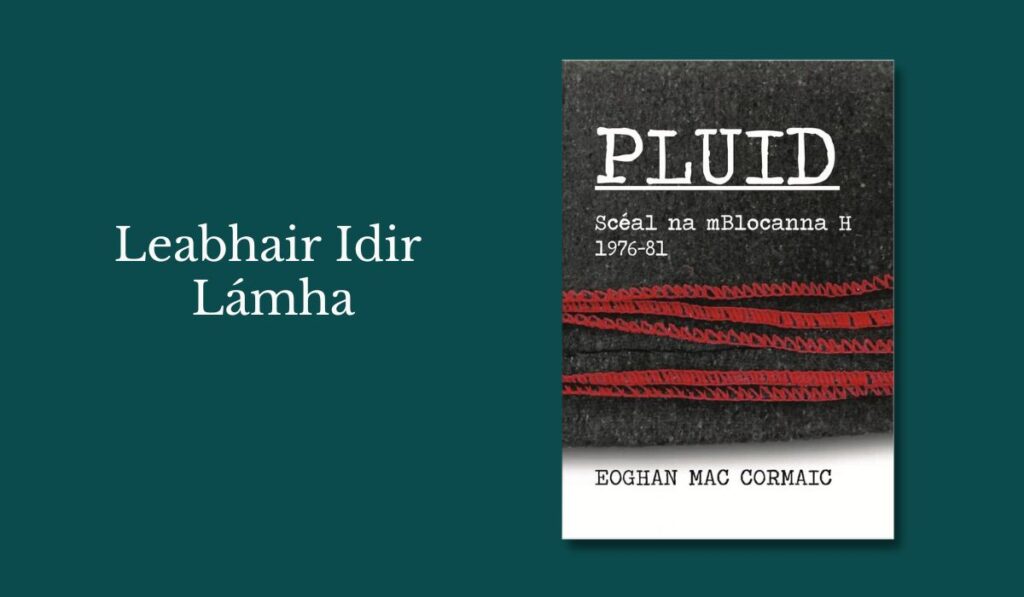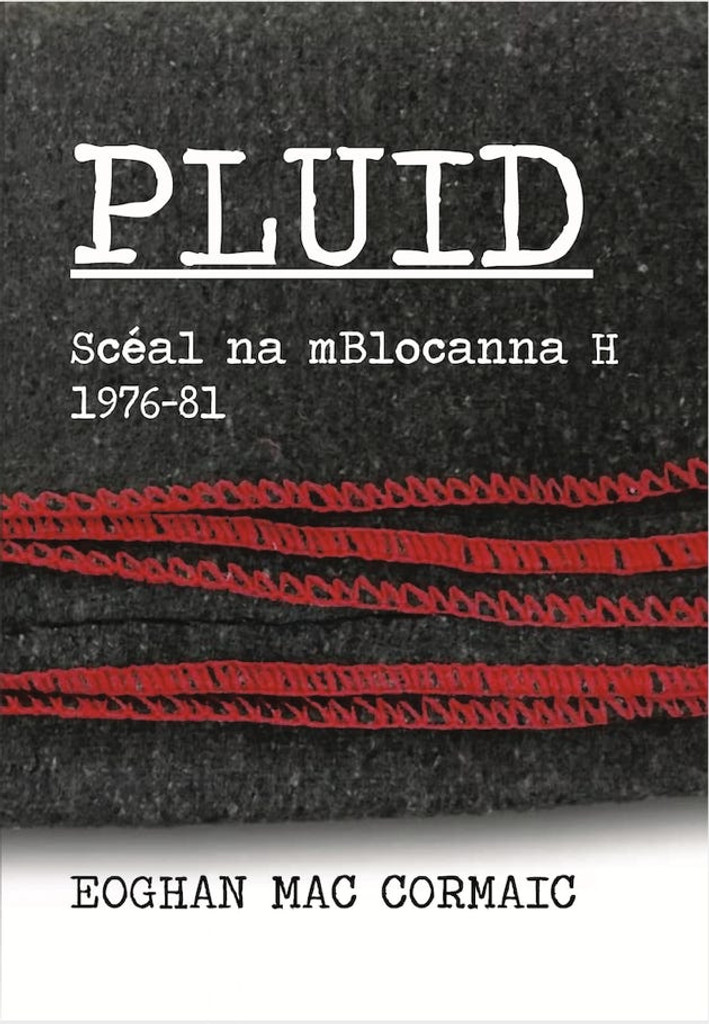
Pluid: Scéal na mBlocanna H 1976-81|Eoghan Mac Cormaic|Coiscéim|6660012220083|€10
Cathal Póirtéir on Eoghan Mac Cormaic’s grim but illuminating memoir
“This memoir of events in the H-Blocks forty years ago reminds readers of how awful things were then and how far society has come since—as well as how far we still have to go.”
by Cathal Póirtéir
It’s over forty years since the H-Block protests ended in the deaths of ten republican hunger strikers in the Maze prison.
The protests captured news headlines regularly as campaigners took to the streets in support of the prisoners’ five demands. There was also an increase in sectarian violence with a number of tragic killings, including 20 prison officers.
Troubled period
For older readers this book will bring back memories of a particularly troubled period and perhaps explain what made the prisoners adopt their extreme protest measures.
For younger readers, this account offers a window on historical events that eventually led Sinn Féin to become involved in electoral politics north and south.
There have been a number of books that describe the H-Block protests but this is the first account in Irish.
Eoghan Mac Cormaic
Pluid is the story told from the point of view of a republican prisoner from Derry. Eoghan ‘Gino’ Mac Cormaic spent 1,580 days ‘on the blanket’ and the ‘dirty protest’ and another 400 days in other forms of protest against the policy of ‘criminalisation’.
In 1976 the British government changed their policy with regard to paramilitary prisoners who had held a special status that allowed them to wear their own clothes and associate in groups in compounds.
Those involved in the protests were mostly members of the Provisional IRA with others from the INLA.
Mac Cormaic’s account is from the perspective of the protesting prisoners and traces their campaign as it escalated from refusing to wear prison clothes, to the no-wash and dirty protests and eventually to the hunger strikes. He emphasises the regular beatings, strip searches and mistreatment that led to constant ill feelings between prisoners and staff.
Daily boredom
The prisoners tried to break the daily boredom by shouting messages between cells, exchanging snippets of news from the outside.
They organised quizes, story times, debates and Irish language classes where the teacher might only be a few classes ahead of his student in the ‘Jailtacht’.
Sunday mass provided an opportunity for prisoners to mix briefly and exchange ‘comms’, contraband tobacco and news. The monthly visit was eagerly awaited but often suddenly cancelled as a punishment for non-cooperation.

Solidarity
To an outsider, the discipline and solidarity of the prisoners is extraordinary. Their opposition to the new rules (and the punishments for that) was central to their view of themselves as actively opposing the British and prison authorities.
Even when some prisoners opposed certain proposed escalations in internal debates, they accepted the authority of block commanders when decisions were taken and presented a united front.
Rightly or wrongly they felt that the strategies they adopted were their only options to press their demands and display symbolic resistance, even when certain tactics were not always supported by republican leaders on the outside.
Bobby Sands
The death of Bobby Sands on hunger strike marked the beginning of the final phase of protests which saw 10 hunger strikers die before compromises were reached that allowed the prisoners to end their protests.
One of the great pities of that period was the hardened and inflexible attitudes at key points that might have ended the protests before the deaths of the ten hunger strikers and twenty prison officers who died during the period, not forgetting those others killed on the outside as tensions rose.
Glimpses of humour
Although told from a personal perspective, Eoghan Mac Cormaic manages to tell his story as one of a group. Sometimes his own part comes to the fore, hiding a crystal radio in his body and relaying news to others, including the election and death of Bobby Sands.
One early incident tells of the first letter from his mother who had encouraged several family members to add their own comments to hers. Prison authorities decided to regard this as seven separate letters and withheld it.
While much of this book is inevitably grim and uncomfortable reading there is some humour in Mac Cormaic’s recollections.
The origins of numerous nicknames and prison vocabulary will raise a smile, as will the story of the unfortunate Danny Aiken. It may not be intentional humour but the almost metaphorical story of republican prisoners being beaten with a heavy tome written by Connor Cruise O’Brien just couldn’t be made up.
Avoidable tragedy
Readers will come away from the book with their own feelings about what happened and why. Not surprisingly, as a participant in the protests Eoghan Mac Cormaic views the IRA campaign as justified and the hunger strikers as heroes.
Readers do not have to agree with his analysis and account of the protests to find much of interest in the unfolding story he details.
The overall impression I was left with was of a tragedy that might have been avoided, of lost opportunities to resolve the conflict because of mistrust and inflexibility, of decisions taken and things done that led to—rather than away from—confrontation and suffering.
This memoir of events in the H-Blocks forty years ago reminds readers of how awful things were then and how far society has come since, as well as how far we still have to go.

Cathal Póirtéir has specialised in researching, presenting and commissioning Irish interest material in various radio formats and in books, including history, literature and folklore in Irish and English, as well as current affairs and drama.












